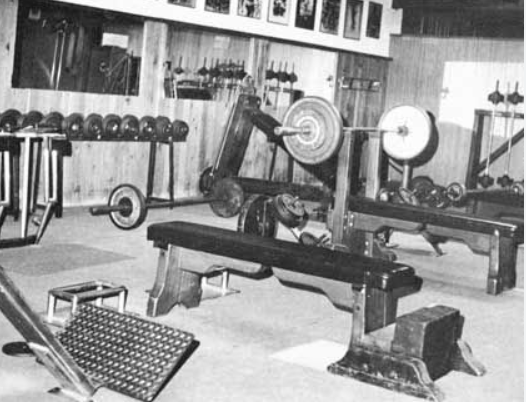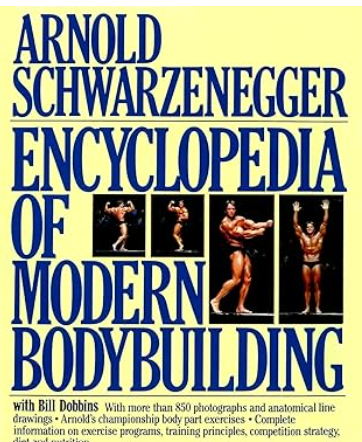Weight Training
With very few exceptions (e.g. illness or recovering from surgery), for the past 40+ years I have done weight training 5 days every week. A weight workout, for me, is 30 minutes of intense lifting and I have followed the same regime for 4 decades:
I say weight training is "my religion" as it is a near daily practice, something that starts and orients the rest of the day. I do not consciously say to myself, "should I go to the gym today?" If it is a gym day I get up and just go. There is no perceivable "volition". Typically I follow 2 days on, off day off, but it can vary depending on other factors like work/family. As a daily practice for many decades weight training provides tranquility in my life. When circumstances arise that disrupt my workout schedule, like recovering from injuries or gym closures during COVID, this has a major disruptive impact on me. But I do have a home gym, so really only injury, illness or travel disrupts my workout routine.
Weight training has also served as a "cognitive enhancement" for me, and I say this for two reasons. Firstly, I am very fortunate that, now in my mid-50s, I have retained what I at least perceive to be a high level of concentration and appetite for research and writing. I have spoken to many other people around my age who complain that either these things are not at the levels they use to be when younger, or that they never were particularly high to begin with. The only thing I am aware that has changed for me is that can not work effectively in the evenings. Trying to just proof read an article, let alone do the creative aspects of writing, is not something I would undertake after 9pm. My brain is getting ready for sleep. The younger me had a different sleep pattern. But that is the only cognitive change I am aware of.
Ample empirical research has demonstrated different cognitive benefits from exercise, such as improved neuroplasticity. All I know is that after I have subjected my body to 30 minutes of intense weight training it is like my mind is waiting and welcoming of me. When I sit down to write after exercise my brain says "Ah, welcome back!". And the ideas and concentration are just there. If, instead of working out most mornings my daily practice had been posting on social media I suspect that, when I needed to start the serious work requiring intellectual engagement my mind would already be slightly fatigued. A decades long practice of oscillating between "short but intense body training" followed by "long intense cognitive training" seems to have synced my psyche. It is like my body and mind have an agreement with each other to honour the efforts made in the other's domain. So that when my body has been exerted my mind shows up to enable me to put in the time taxing it. Then the next morning when I wake up and call upon my body for exertion it too complies and delivers.
Thirdly, exercise has been shown to prevent depression as well as be an effective treatment for depression. I know for me there is a feeling of achievement after a good workout, and I can then attend, with concentration, clarity and commitment, to the demanding intellectual tasks that face me on a daily basis. When I do miss workout days, because of injury or travel/work, etc. it negatively effects my mood. Three days without exercise and there will be a perceivable alteration in my quality of life.
Are there any adverse side effects/downsides to weight training? Yes, of course. Injury being the most obvious. I have had shoulder surgery in both arms, as decades of bench press and over head lifts no doubt accelerated the deterioration of the cartilage in both shoulders. Fortunately for me there is effective shoulder surgery to remedy this problem. And so 10 years after surgery in both shoulders, in addition to 10 years of aging, I can still bench press 95% of the weight I was doing prior to injury/surgery. But I have a different mentality now, which I think comes with age. Until my early 40s I still had a "no pain no gain" and "keep increasing weights" mentality. But after two shoulder surgeries I shifted my mind to a "its about the long game!" mentality. I want to enjoy weight training for the rest of my life. So now, when injuries arise (which is more frequent), I take time to rest and heal. It is typically pain in joints, like the wrists or elbows, that create the problems. But as long as I modify when this occurs, the problem does not persist long.
Consistently working out also requires time and a flexible work/parenting schedule. I am fortunate that my work and family life has afforded me the opportunity to fit in time for weight training. But I do believe that everyone, no matter how demanding one's work/family commitments are, can and should find time for exercise. We only have one body, and if we take care of it and nurture its development it will repay our efforts with better physical and mental health.
Cheers,
Colin




<< Home